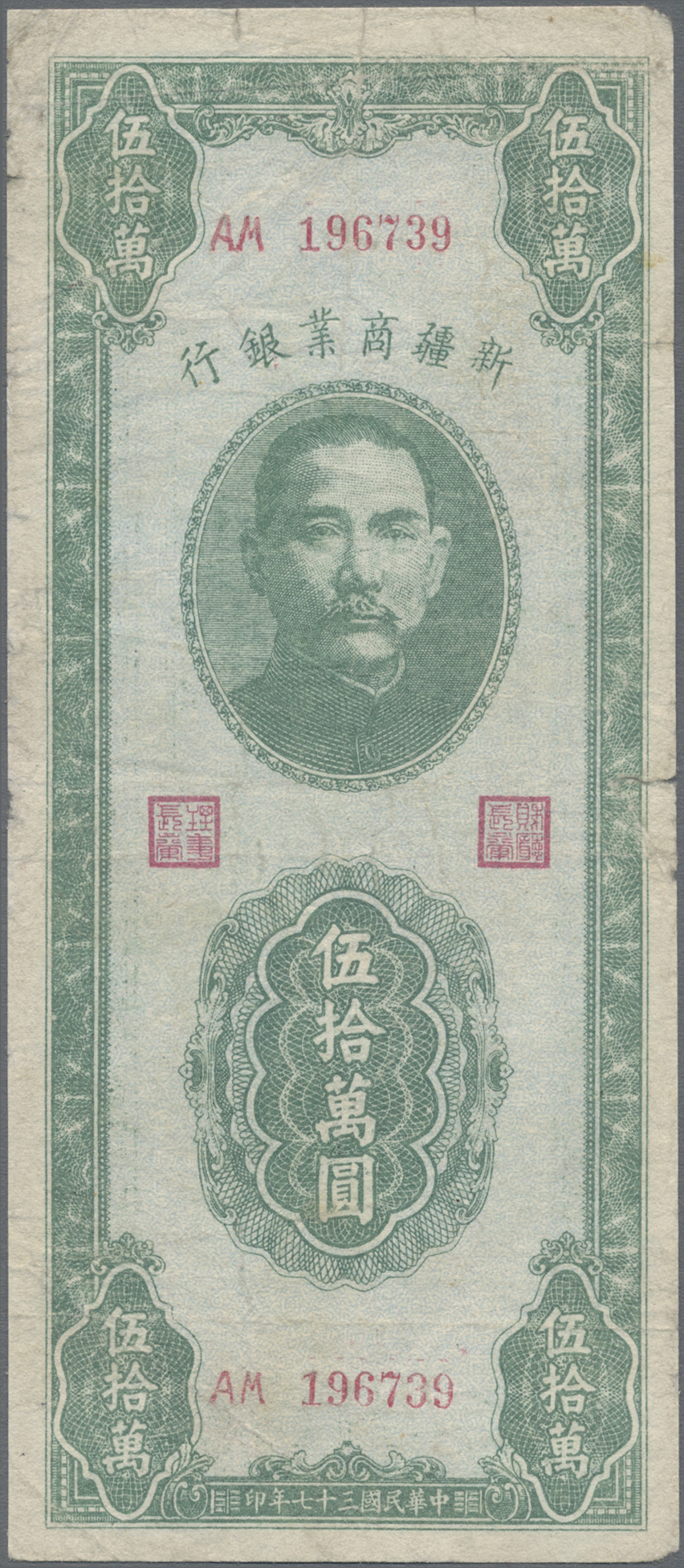Banque Industrielle d'Egypte Société Anonyme; Alexandria, 07.04.1899, Une Action de Dividende, #9336, 23 x 38,5 cm, orange, schwarz, KB. Als Quasi-Kolonie war Ägypten am Ende des 19. Jahrhunderts im britischen Weltreich die Rolle des Baumwolllieferanten für Manchester zugedacht. Entsprechend dominierte dieser Sektor die gesamte Wirtschaft des Nillandes. Auch die meisten Banken, mit dem Crédit Foncier Egyptien an erster Stelle, finanzierten bevorzugt den Erwerb von Agrarflächen. Einer Diversifizierung der Wirtschaft und insbesondere dem Aufbau einer lokalen Industrie standen die britischen Statthalter durchweg skeptisch bis feindlich gegenüber. Umso erstaunlicher ist die Gründung der Industrial Bank of Egypt. Geistigen Rückhalt fand die Industrialisierungsidee nur beim damaligen Khediven Abbas Hilmi, der so auch 1895 die Gründung einer nationalen Spinnerei- und Weberei durch lokale Geschäftsleute freudig begrüßte. Da Abbas Hilmi jedoch kaum echten wirtschaftspolitischen Einfluss besaß und die wenigen industriellen Initiativen nicht ausreichend durch entsprechenden Unternehmergeist unterfüttert waren, fand die Industrial Bank keinen fruchtbaren Boden für das im Namen proklamierte Finanzierungsprogramm. Ohne nachweisbare Ergebnisse gab sie ihre Tätigkeit schnell wieder auf. Dennoch darf man in ihr den Versuch einer nationalen wirtschaftspolitischen Emanzipation von den Interessen der Kolonialmacht sehen. Erst ein halbes Jahrhundert später, am 18.04.1949, wurde auf staatliche Initiative eine neue Industrial Bank of Egypt gegründet. Alexandria, 7 April 1899, Une Action de Dividende, #9336, 23 x 38.5 cm, orange, black, coupons. As a quasi-colony Egypt was intended to be the cotton supplier for Manchester in the British Empire at the end of the 19th century. Therefore this economic sector was engrossing the whole economy of the country on the Nile. Most banks, in the first place Crédit Foncier Egyptien, preferred to finance purchase of agricultural land. The British governors were sceptical or hostile towards the diversification of the economy and particularly towards the build-up of a local industry. The foundation of the Industrial Bank of Egypt is at the more surprising. The idea of industrialisation was supported by then khedive Abbas Hilmi, who was happy about the foundation of a national spinning and weaving company by local businessmen in 1895. Because Abbas Hilmi could not win economical and political influence and the entrepreneurial spirit of the industrial initiatives was not strong enough, the Industrial Bank was unsuccessful with its financing program. The bank stopped its operation showing poor results very soon. Nevertheless we can see an attempt of a national economy to become independent from the colonial power. A new Industrial Bank of Egypt was established by an initiative of the government 50 years later, on 18 April 1949.
EF
HWPH Historisches Wertpapierhaus AG
Send Email to HWPH Historisches Wertpapierhaus AG Or Visit WebSite












